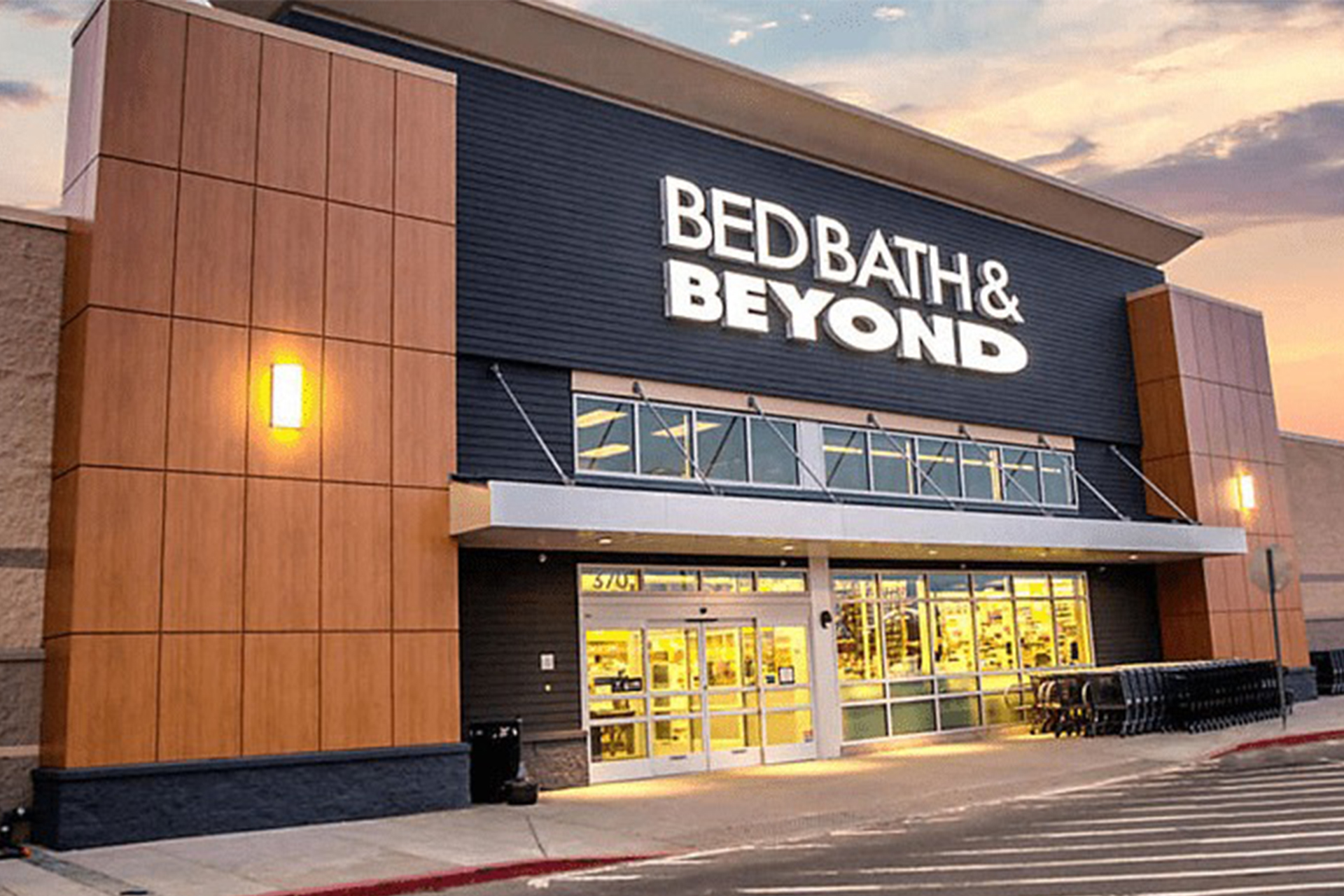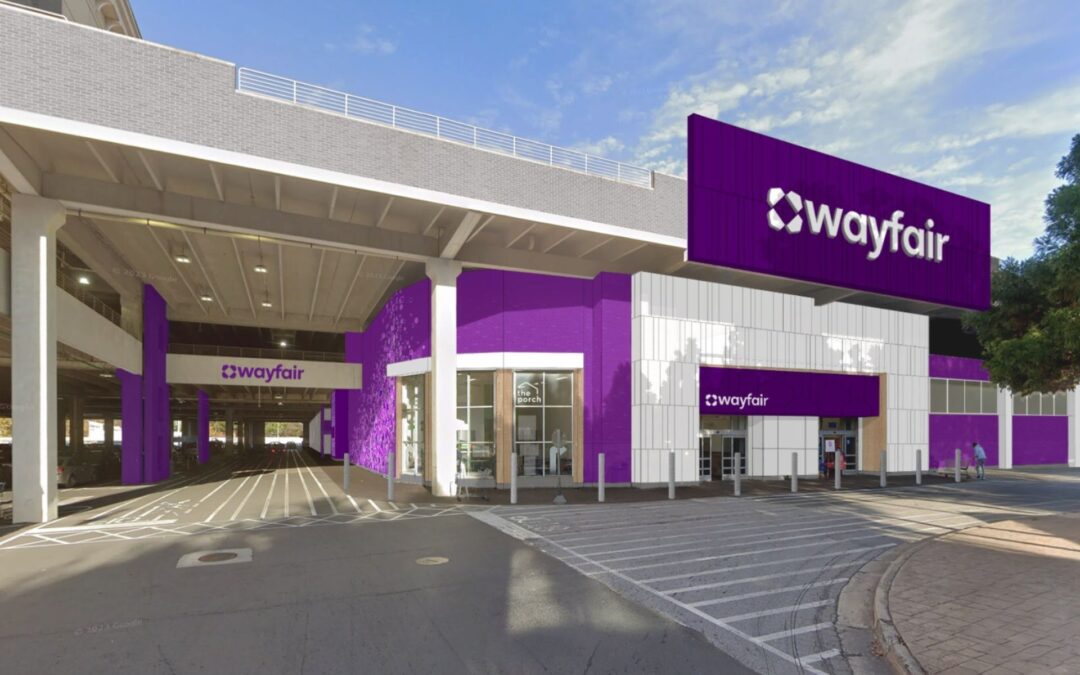Bed Bath & Beyond is returning to the equity market in a bid to raise cash while simultaneously warning of weak fourth-quarter results and the possibility of bankruptcy.
The company announced it had launched a new, At-The-Market offering program, entering into a common stock purchase agreement and a registration rights agreement with B. Riley Principal Capital II to provide additional cash. Bed Bath & Beyond said it will use the potential net proceeds from the financing transaction, if the market responds favorably to it, to fulfill conditions an amendment to the company’s credit facility filed. The company stated it expects to use its amended credit facility to enable its strategic initiatives in fiscal 2023, such as investing in merchandise inventory, a move that it will support through a realigned store footprint and cost structure as it negotiates with the firms financing it to keep inventory flowing.
In a filing with the United States Security and Exchange Commission, Bed Bath & Beyond stated, under the credit facility amendment, its total revolving commitment was decreased from $565 million to $300 million. The letter-of-credit sub-limit under the revolving credit facility was reduced from $225 million to $175 million with respect to both term loans and revolving loans. In addition, the company, its U.S. and Canadian subsidiaries party thereto, the administrative agent and the FILO agent have agreed to negotiate in good faith to enter into a consignment agreement following the closing of the amendment.
Bed Bath & Beyond acknowledged it owes about $101.5 million, excluding $105.6 million in letters of credit under its credit facilities, and has approximately $11.5 million available to borrow.
In a prospectus for the new equity offering, Bed Bath & Beyond warned, for the fiscal 2022 fourth quarter ended February 25, net sales were about $1.2 billion and comparable sales fell in the 40% to 50% range. Negative operating losses continued, it noted, and it had modest free cash flow usage.
The prospectus further warned:
The timely achievement of our transformative plan as well as our ability to maintain an adequate level of liquidity are subject to various risks, some of which are outside of our control. In particular, our ability to build back inventory is critical to the success of our transformative plan and our vendors may not cooperate and effectively allow us to build back inventory at a scale needed for us to successfully operate our business. We have failed to timely make payments due to our vendors, landlords and similar other business partners, which has affected our relationship with such parties and our reputation and may affect our ability to successfully engage with such parties and other business partners in the future.
If the equity offering fails to raise sufficient capital, Bed Bath & Beyond might run out of options. The company further stated in the prospectus:
In the event that we fail to obtain all of the anticipated proceeds under the committed equity facility as a result of the applicability of the exchange cap, which prevents us from issuing more than 20% of the company’s issued and outstanding shares below certain prices, we expect that we will likely file for bankruptcy protection. We will continue to explore strategic alternatives in the future to the extent necessary to implement our transformative plan.
Unless we receive shareholder approval to increase our authorized share capital or effectuate a reverse stock split, we may not have sufficient authorized share capital for issuing all of the shares of common stock subject to this offering or the committed equity facility. If we are unable to issue all of the shares of common stock subject to this offering and the committed equity facility, we expect that we will likely file for bankruptcy protection. The company intends to effectuate a reverse stock split and is seeking to obtain shareholder approval at a special meeting of shareholders. If the reverse stock split is approved by the shareholders and the company effectuates the reverse stock split, the total number of issued and outstanding shares of common stock would decrease based on the reverse stock split ratio. Because the number of authorized shares of our common stock will not be reduced proportionately, the reverse stock split will increase the board’s ability to issue authorized and unissued shares without further shareholder action. The issuance of shares of common stock would be dilutive to our existing shareholders and may also cause a decline in the trading price of our common stock.
Bed Bath & Beyond admitted it had historically underperformed in implementing management plans, including its transformative plan:
For example, after launching a turnaround plan in the second and the third quarters of fiscal year 2022, we were not able to achieve our anticipated 2022 holiday results, largely due to our inability to supply our various sales channels with the appropriate level of merchandise and decrease in traffic trends. If we are not successful in implementing our transformative plan, our business, financial condition and results of operations may adversely be affected, which may force us to consider additional strategic alternatives, including restructuring or refinancing our debt, seeking additional debt or equity capital, reducing or delaying our business activities and strategic initiatives, or selling assets, other strategic transactions and/or other measures, including filing for bankruptcy protection. We may not be able to successfully execute any strategic alternatives we are currently considering or any other options, and our ability to do so could be adversely affected by numerous factors, including changes in the economic or business environment, financial market volatility and the performance of our business.
In a research note, Morningstar Equity Analyst Jaime Katz characterized the new Bed Bath & Beyond financing initiative as the only viable means of raising capital as its options have declined in step with its operation. He maintained sluggish foot traffic has hurt Bed Bath & Beyond sales. A strategy unveiled in August 2022 to revitalize its brand and regain customer confidence by reverting focus to national brands was similar to other plans the company has launched in the past and never raised Katz’s confidence in a turnaround. He added that third-quarter results, which included a 33% drop in sales, suggested the strategy had failed to stimulate demand.
To remain an ongoing concern, Katz continued, Bed Bath & Beyond creditors would have to demonstrate a willingness to work with the company to keep it afloat, which Katz described as unlikely. Then, he added, Bed Bath & Beyond would have to stabilize gross margin by applying better inventory management processes. In the bigger picture, Katz asserted the currently declining housing demand would have to stabilize to support sales. Yet, given the competitive nature of the market for home goods, even with internal improvements, Bed Bath & Beyond would be facing a promotional environment that would limit its ability to generate profits, Katz stated.
As the company announced its new equity initiative, Sue Gove, Bed Bath & Beyond president and CEO, said, “The actions we’ve taken have enabled us to create the necessary financial runway to begin restoring our iconic Bed Bath & Beyond and buybuy BABY businesses. We have raised $360 million of equity capital since the beginning of February, cured our default under our credit agreement, repaid material amounts of our [asset-based lending] facility, completed our interest payment for our senior notes, all while jump-starting our turnaround plans.
“The customer experience remains our top priority and we are making meaningful progress to improve our business and calibrate to customer demand,” Gove continued. “In addition to leveraging our recent capital to reinvest in high-demand inventory, we are also developing a third-party consignment program that will allow us to fortify our product assortments by expanding merchandise availability from key supplier partners. We are on pace to achieve our target of 360 top-performing Bed Bath & Beyond stores by the end of April, in addition to our existing 120 buybuy BABY stores. In conjunction with our online business, these productive stores are pivotal to our omnichannel strategy and future profitability.”
Gove said Bed Bath & Beyond remains focused on creating operational and financial resources that can help it progress. The ATM Program will expand the reach of the company’s equity program, management believes, and can accelerate the return of Bed Bath & Beyond and to prominence in home goods retailing, she said.





